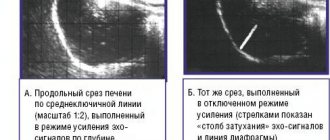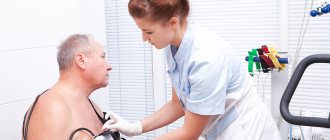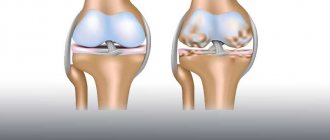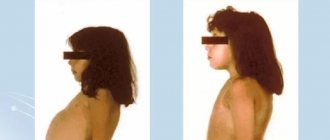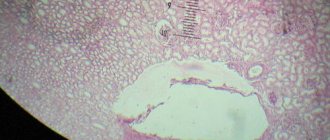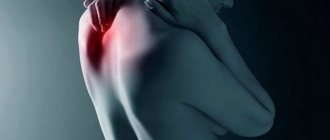Hypertension is a pathology of the heart and blood vessels, manifested by increased blood pressure. In the pathogenetic mechanism of the formation of the disease, disturbances in the neurohumoral, central and renal mechanisms of blood pressure regulation play a huge role.
Arterial hypertension is one of the fundamental risk factors for the development of potentially fatal diseases - stroke and heart attack. That is why it is important to know why hypertension occurs, how it is diagnosed and what medications are used in treatment.
What is hypertension?
A syndrome in which there is a regular, long-term and persistent increase in blood pressure is called “arterial hypertension” or “hypertension”. This syndrome may appear:
- in case of hypertension (HTN) - a primary independent disease;
- for secondary (symptomatic) hypertension , which is a consequence of disruption of the functioning of various organs - kidneys, adrenal glands, thyroid gland and others.
Hypertension accounts for the majority of cases of hypertension. The etiology of hypertension is not reliably known, but it is based on primary functional disorders of the systems that regulate blood pressure.
Risk factors for developing hypertension include:
- hereditary predisposition;
- a sedentary lifestyle, which reduces the body’s adaptive capabilities and disrupts the functioning of the circulatory system;
- high body mass index. In obese people, the risk of developing hypertension increases 2-6 times;
- excess salt in the diet, which leads to the accumulation of excess fluid in the body, which increases the load on the cardiovascular system;
- drinking alcohol, smoking;
- elderly age. The older a person gets, the higher their risk of developing the disease.
It turns out that in most cases, bad habits lead to hypertension - physical inactivity, overeating, poor nutrition, nicotine and alcohol addiction. That is why hypertension is considered a pathology directly related to lifestyle, and changing it for the better is the main element of successful treatment.
Forecast
With arterial hypertension of the 1st degree, as a rule, it is possible to avoid a further increase in blood pressure without the use of pills - by eliminating risk factors and changing a person’s lifestyle.
However, sometimes it is impossible to do without appropriate antihypertensive therapy and drug treatment. Taken together, following simple rules of behavior and regularly taking pills allows you to most effectively control the condition and prevent the development of serious complications such as myocardial infarction or stroke.
What blood pressure is considered high?
Blood pressure is a factor that gives the specialist important information about the functioning of the circulatory system. Blood pressure levels are affected by:
- The magnitude of cardiac output, which in turn depends on the contractility of the left ventricle of the myocardium, heart rate and other parameters.
- Total peripheral vascular resistance (TPVR) is an indicator that reflects the ability of blood vessels to resist blood pressure from the inside. OPSS depends on the tone, stiffness of blood vessels, and blood viscosity.
- Circulating blood volume.
Blood pressure has upper and lower limits. The upper pressure is called "systolic", the lower - "diastolic". The first value reflects the force of blood pressure in the arteries during myocardial contraction, the second - at the moment of relaxation of the heart muscle.
The ideal pressure is considered to be 120/80 mm Hg. Art. Depending on the individual characteristics of a person (gender, age, physical activity), a slight deviation of these values down or up is allowed. However, in any person, blood pressure should not exceed 140/90 mmHg. Art. Higher levels are potentially dangerous and can lead to functional and organic damage to target organs.
Treatment of hypertension
The method of treatment depends on the degree of development of the disease. In the first preclinical stage, normal blood pressure levels can be maintained without the use of medications. The patient needs to balance their diet, give up bad habits, lead an active lifestyle and normalize their sleep and work patterns.
When treating stage 2 hypertension, the doctor prescribes a medication for long-term use and with a minimum number of contraindications, combined with moderate activity and giving up bad habits. The drug is prescribed by a cardiologist after examining the patient. The drugs must be taken continuously as this can cause a stroke or heart attack.
Therapy of stage 3 hypertension is carried out with the help of 1-2 drugs from different drug groups in combination with an active lifestyle and stabilization of nutrition and sleep patterns.
- diuretics with a diuretic effect are prescribed for salt and water retention in the body;
- to normalize blood circulation - ACE inhibitors;
- calcium antagonists - to reduce the oxygen demand of the heart muscle;
- beta blockers for atrial fibrillation or other concomitant pathologies.
Therefore, when determining therapeutic therapy, the doctor must know the patient’s entire medical history, take into account contraindications, lifestyle and physical characteristics (body weight, height).
Hypertension is treated in Krasnoyarsk at the medical level. We have experienced cardiologists who will conduct a complete examination and examination, friendly medical staff and high-quality equipment. To make an appointment with a specialist or find out more detailed information, leave a request on the website or by calling the clinic 201-03-03.
Stages of pathology
Depending on the degree of increase in blood pressure, three stages of hypertension are distinguished ⇓⇓⇓
First stage of headache
In the first stage of hypertension, high blood pressure can independently return to normal values. As a rule, at this stage of the disease, target organs are not affected and there are no complications.
Second stage of headache
At the second stage of hypertension, a person may experience various pathological changes:
- thickening of the walls of the left ventricle of the myocardium, which often leads to heart failure and coronary heart disease;
- atherosclerosis - the formation of atherosclerotic plaques on the walls of blood vessels that impair blood circulation;
- retinal angiopathy is a violation of the tone of the vessels that supply the iris of the eye.
At the second stage of hypertension, normalization of blood pressure is possible only with the help of medications.
Third stage of headache
The third stage of hypertension can lead to severe complications:
- stroke - acute disruption of blood supply to the brain;
- aortic dissection - rupture of the largest artery. If the aortic wall is completely ruptured, massive blood loss occurs;
- myocardial infarction - necrosis of a section of the heart muscle;
- renal failure - decreased excretory capacity of the kidneys.
In the third degree of hypertension, blood pressure is difficult to normalize even with the help of medications. A person may experience hypertensive crises, during which blood pressure rises sharply and urgent medical attention is required.
What symptoms may indicate hypertension?
As a rule, the disease is asymptomatic for a long time. In some cases, increased pressure is accompanied by:
- frequent heart rate;
- headaches, dizziness;
- weakness, fatigue;
- redness of the facial skin;
- increased sweating;
- blurred vision, ringing in the ears.
However, such symptoms are not specific to hypertension and may be signs of other diseases or fatigue. Therefore, pathology can be detected at an early stage only by regularly measuring blood pressure.
Why is hypertension dangerous?
The heart pumps blood through the blood vessels, providing all the body's cells with oxygen and nutrients. When blood vessels become clogged or lose their elasticity, the heart begins to work harder and increases the pressure inside the vessels.
Against the background of the disease, if not treated in a timely manner, serious pathologies such as acute heart failure, hypertensive crisis, stroke, and myocardial infarction can occur.
The difficulty of hypertension is that it often remains virtually asymptomatic for years and the person does not know about the existence of the disease. Symptoms are often observed - headache, fatigue, memory loss, dizziness, high blood pressure, to which a person simply does not pay attention. This may indicate the beginning of the development of the disease.
How is the disease diagnosed?
To diagnose arterial hypertension, a doctor needs to take several blood pressure measurements at different times of the day. If necessary, a specialist can prescribe ABPM - an instrumental study in which blood pressure is monitored throughout the day using a special device.
Differential diagnosis of hypertension occurs as follows:
- An examination of organs whose pathologies could cause increased blood pressure is performed. For example, the examination may include an ECG, ultrasound of the kidneys, and fundus examination.
- If secondary hypertension is excluded and a specific cause for the increase in blood pressure is not found, then a diagnosis of hypertension is made.
Sources
- Russian Cardiological Society. Clinical guidelines “Arterial hypertension in adults”, 2021.
- High blood pressure (hypertension). Mayo clinic. 2021.
- T. V. Ashcheulova, T. N. Ambrosova, V. I. Smirnova. “The main symptoms and syndromes of hypertension and symptomatic arterial hypertension: method. decree. for students” / comp. – Kharkov: KhNMU, 2021. – 32 p.
- Tabassum N, Ahmad F. Role of natural herbs in the treatment of hypertension. Pharmacogn Rev. 2011;5(9):30-40.
- Givi M. Durability of effect of massage therapy on blood pressure. Int J Prev Med. 2013;4(5):511-516.
- Mohebbi Z, Moghadasi M, Homayouni K, Nikou MH. The effect of back massage on blood pressure in the patients with primary hypertension in 2012-2013: a randomized clinical trial. Int J Community Based Nurses Midwifery. 2014;2(4):251-258.
- Marjorie Hecht "Types and Stages of Hypertension". Healthline. 2019.
Prevention measures
Measures to prevent hypertension include:
- regular physical activity;
- giving up alcohol and smoking;
- balanced diet.
- dosed consumption of table salt (no more than 5 g per day).
Also, do not forget to regularly measure your blood pressure with a tonometer, which will allow you to notice its increase in time and seek medical help.

